September's Tragedy
By Josh Lu
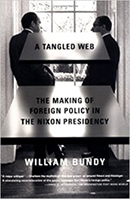
Simon Reeve
An English author and TV host residing in London, Simon Reeve has made a name for himself through his astounding documentaries. His first book, The New Jackals, brought critical acclaim following the attacks of September 11, being the first to warn of al Qaeda’s imminent danger.
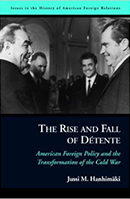
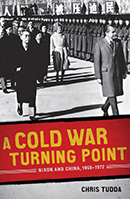
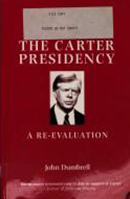
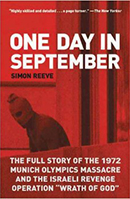
Crowned “The Games of Peace and Joy,” the 1972 Munich Olympics was the costliest and most extravagant sporting venture in its time. Hosting over 10,000 participants from 121 countries, newly democratic West Germany attempted to atone for the tragic past upheld by Hitler’s brutal Nazi regime. Despite the overflow of money and effort pumped into the XX Olympiad, nothing could prevent tragedy from striking. The aesthetic Olympic Park with its cuddly mascot, Waldi the Dachshund, was quickly overshadowed by the massacre of 11 Israeli athletes on German soil once again. Inside One Day In September, Simon Reeve documents the tragic events of the Munich Hostage Crisis and exposes the clandestine Israeli response on the Black September terror group. The first hostage crisis ever broadcasted on national television, millions of viewers around the world were transfixed by their television sets as they watched masked gunmen step “onto the global stage and orchestrate a theatrical day-long siege that ended in a massacre.”¹ An event that initiated an era of “New Terrorism”, the Munich terrorist attack would rename the 20th Olympics as “ The Games of Terror and Tragedy.”
Interpreting the Munich Massacre wouldn’t be possible without understanding the long lasting history of another region almost 2,000 miles away. The Jewish and Palestinian civilizations have been at war over the shores of the Mediterranean for over two millennia. Israel, Palestine, Judea--no matter what name given, this region has been claimed by both the Muslims and Jews as their rightful Holy Land. Following the Jewish Diaspora under the Roman Empire and the defeat of the Palestinians by the Ottoman Turks, Israel became suppressed by periods of foreign conquest. As a result of European persecution, a Zionist movement emerged following the end of the 19th century as Jews fought to create an Israeli state. With the end of World War I, an influx of Jewish immigration to the Muslim-occupied Palestine occurred. This joint occupation of the region once again was not warmly welcomed as both sides professed their discontent by launching terrorist attacks. As European cities succumbed to Hitler’s conquest, so did European Jews, facing the full enforcement of the Final Solution, set to wipe all Jews from existence. Back in the Middle East, the Arabs favored a German, Anti-Semitic victory while the Israelis hoped to gain leverage through an Allied success. Following centuries of conflict, the suffering of the Jewish population was epitomized by the Holocaust. With six million of their fellow European compatriots murdered, Jewish leaders were “haunted and inspired” to create a new Israel.² As leaders of the Free World rushed to carry out postwar reconstruction, a new chapter in history emerged in the Middle East.
History repeated itself as the Palestinians were forced off their land by the newly declared Israeli state. Forced to flee to refugee camps in surrounding Arab countries, the Palestinians launched volleys of incursions, hoping to gain back their cities and homes. Frantically holding on to their accomplishments, the determined Jewish state retaliated famously in the Six Day War, creating a military stalemate between the Holy Land and its surrounding Arab nations. The Palestinian cause was united under The Palestinian Liberation Organization (PLO) in 1964, claiming to be the sole legitimate representative of the Palestinian people. Yasser Arafat, a prominent leader of major Palestinian operations against Israel, unified his political party, Fatah, with the PLO, becoming chairman of the Palestinian Liberation Organization in 1969. Leading the operations against the Jewish state, Arafat saw the need for a specialized covert unit, allowing their operations to be clandestine and preventing international condemnation. With that, Arafat gave his blessings for the creation of Black September. Since the group was “supposedly” independent from the Palestine Liberation Organization, there was no restriction on their tactics, allowing the leadership to establish a new era of terrorism. Black September accomplished a string of successful terrorist attacks, the most infamous one being the Lod Airport massacre. The idea of an hostage situation during the Munich Olympics was incited following the Olympic committee’s rejection to formally acknowledge Palestine at the XX Olympiad. PLO leadership was enraged and adopted a plan to kidnap “as many Israeli athletes and officials as possible and ransom them off in exchange for their imprisoned colleagues.”³ Following a highly classified selection program, six youth were selected for the job: Afif Ahmed Hamid, Khalid Jawad, Ahmed Chic Thaa, Mohammed Safady, Adnan Al-Gashey, and Jamal Al-Gashey. Choosing Palestinians who had all “suffered at the hands of the Israelis,” the leadership wanted men who were not afraid of sacrificing their lives in the name of Palestine.4 As preparations in Munich were finalized, the six specially trained terrorists were smuggled into Germany, all aware that the next few days would change history.
The key factor of the 20th Olympics was reputation. Still recovering from World War II, West Germany carried on their shoulders the atrocities committed by their predecessors. In order to appease the visiting nations, Olympic Games security was almost nonexistent, as German officials wanted to “discourage any memories of Germany’s Nazi past” by having “two thousand Olympic security guards” dressed in “tasteful light blue uniforms..armed with nothing more than walkie-talkies.”5 Ironically, Germany’s measures to prevent tragedy would soon cause total collapse. Seemingly unguarded, the Olympic Village was easily trespassed by the Black September operatives on the morning of September 5. Locating the Jewish quarters, the terrorists breached the compound, taking 11 athletes and coaches hostage in under 20 minutes. Escaped Jewish athletes quickly alerted security, and gunshots from the terrorists would wake the rest of the world up. As Olympic and government officials alike were alerted of the situation, negotiations began following the terrorists’ ultimatum. Requesting their fellow activists to be released from Israeli jails, the terrorists threatened Jewish deaths on German soil again. Trained not to negotiate, the terrorists refused German pleas to prevent another Jewish tragedy, and a stalemate lasted from morning to night. With multiple unsuccessful attempts to save the hostages and Israel’s refusal to negotiate with terrorists, a compromise was created to transport terrorists and hostages to a Western-friendly Middle Eastern country to continue talks. As the hostage group landed at the airport, a crude rescue mission led by a German police force failed to rescue any Jewish personals, as all perished in a uncoordinated firefight between police and terrorists.
As the Palestinians celebrated their countrymen’s heroic actions, the Israelis began planning their revenge: Operation Wrath of God. To prevent Palestinians from claiming victory through Israeli deaths, a covert operation was set up to assassinate high level leaders of the PLO as well as individuals of Black September responsible for the Munich Massacre. Mossad, the Israeli equivalent of the Central Intelligence Agency, was directed to carry out an assassination campaign. For the next 20 years, Mossad and Israeli special forces carried out “an extraordinary campaign characterized by planning, false identities, exotic weaponry, and guile” on dozens of Palestinian leaders across the Middle East and Europe.6 The operation became an embarrassment when scandal struck in Oslo as an innocent bystander was killed, mistaken for a Black September figure. Despite controversy and public disapproval, the missions continued. However, for the families and relatives of the Israeli athletes, assassinations wouldn’t bring their loved ones back; the only remedy for this loss would be time. To let go of the past and move on, Israelis and Palestinians alike saw this as the only option to ensure peace for the future generations. To move on, but not to forget the generation of Israelis and Palestinians united in their search for a national identity.
Providing detailed information from both the Israeli and Palestinian perspective, Simon Reeve makes it clear in his thesis that neither nation emerged from this conflict as the victor. Yes, Black September was successful in escalating their cause through the Munich Massacre, and yes, the Israelis were successful in hunting down those responsible for the tragic killing, but no side emerged from the Israeli-Palestinian conflict as the definite conqueror, not even to this day. Through the well-documented investigation on the events of the Munich hostage crisis, Reeve also aims to expose the Western world’s inability to deal with terrorism especially since “training at that time regarding terrorism was absolutely insufficient.”7 The world’s inability to address “the suffering of both sides” allowed the slaughtering to go unresolved, evolving terrorism into the “apocalyptic game of fanatics who [gloried] in death.”8 Ironically, the attack on the Twin Towers resurfaced the world’s inability to deal with terrorism, despite having been warned before, by the “9/11 of the 1970s.”8
Born two months before the Munich Massacre, Simon Reeve is a British author and well known television presenter for BBC. Reeve received wide acclaim for being the first to document the potential threat of al Qaeda’s Osama bin Laden in his maiden book, The New Jackals. Following the September 11 attacks, The New Jackals became one of three best selling books in America, as Reeve’s warning that “an apocalyptic terrorist strike was almost inevitable” rang loudly in every American’s head.9 As a regular commentator and viable resource on new Terrorism, Reeve traveled to Saudi Arabia in his documentary “House of Saud” and interviewed individuals ranging from Saudi princes to bin Laden’s former best friend. He has also interviewed CIA and FBI officials, gone undercover to meet with spies and militants, and obtained classified information pertaining to some of the most dangerous terrorist organizations in the world. With coherent knowledge through primary and secondary sources, Reeve has created a reputation of credibility for himself. Understanding and experiencing the misconceptions prevalent between the Middle East and the West, Reeve is careful in documenting the Munich Massacre in order to prevent bias towards one party over the other. When presenting the Israeli-Palestinian conflict that has plagued the region, the author addresses the grievances and criticism of both sides, remaining neutral on the heavily controversial subject. However, Reeve presents a slightly biased perspective when documenting the Palestinian exodus, criticizing the PLO for its violent tactics in gaining international recognition. Thus maintains an overall neutral mindset. Explaining Steven Spielberg’s upcoming film on Israeli’s response to the Munich Massacre, Simon hopes the film will be not only a reminder of “the tragedy in Munich” but also the indication that “hunting and clinically murdering militants” rarely succeeds.10 Presenting his criticism on both Black September’s actions and Israel’s response, Simon Reeve believes that both states are responsible for a century of grief.
Trevelyn E. Jones, in short, summarizes One Day in September as a book “originated with research conducted for an Oscar-winning documentary,” that “goes beyond the film to present many disturbing and previously unknown facts.”¹¹ Jones points out Simon Reeve’s excellent effort in compiling extensive information regarding the incident, much of which had been kept secret until recently. He also mentions how, unlike the widely acclaimed documentary, Reeve goes out of his way to include information surrounding “retaliation and cover-up that continued for years” after 1972.¹¹ These “extensive interviews with Israeli, Palestinian and German officials and an exhaustive review of official German documents” offers an “updated epilogue” of the Munich incident, as claimed by Michigan State University’s Michael Rubner in his review.¹² Rubner praises Reeve’s tactics in linking the events of September 5 to “the horrors of 9/11 and Israel’s policy of targeted killing,” undoubtedly raising questions surrounding the morality of either party’s actions.¹² A illuminative report with a wide range of perspectives allows the story of that fateful Tuesday to be correctly reconstructed. As much as the Germans wanted this affair to quietly disappear into the books, Simon Reeve, through One Day in September, reminds the world that the wounds of Munich have yet to be healed.
By the end of the 20th century, a frenzied era of endless terror attacks had seemed to slip quietly into the dark, yet however this notion was quickly shattered. The appalling attacks of 9/11 in 2001 quickly reminded the world of its vulnerability and once again amplified international efforts to battle terrorism. The words “bin Laden” and “al Qaeda” become infused in everyday conversation as the terrorist establishment became a “global ideology.”¹³ This renewed interest in terrorism prompted Simon Reeve to analyze the roots of New Terrorism, landing him on a tragic chapter of history in early September 1972.
The full length title of Simon Reeve’s work is actually One Day in September: The Full Story of the 1972 Munich Olympics Massacre and the Israeli Revenge Operation “Wrath of God.” This full title perfectly illustrates the context of Reeve’s writing. Not only a book on the hostage crisis, One Day in September covers a canvas of turmoil between the Jews and Palestinians. One Day in September carries the reader from the planning stages on a little cafe terrace in Rome to the exploding helicopters at Furstenfeldbruck airport. From an extensive list of Black September jet hijackings to the individual killings of the Israeli Operation Wrath of God, Reeve takes exhaustive steps to ensure sufficient detail for each portion of this progression of history. “Forced to confront personal demons when summoning the courage to compete and work on German soil,” the athletes involved in the tragic event were recorded and brought to life, as a final eulogy praising their love for sport and love for country.14 As for the young Palestinian commandos, their “fight for their land,” “dignity,”and “right to a decent life,” are captured by Reeve in a similar manner.15
The severe crisis of the 70s was a direct result of the failure of the 60s. As the dangers of Communism died down, a new threat emerged from the vast expanse of the Middle East. The cultivation of terrorism began many centuries ago, but events in the 1970s, including Munich, marked the beginning of “the modern era of international terrorism.”16 Despite America’s policy of non-negotiation with terrorism, other Western democracies favored appeasement to prevent further insurrections. Just as Europe had succumbed to Hitler thirty years ago, the same ease was demonstrated on terrorism delivered a strikingly similar effect. Given an unprecedented amount of leverage, terrorism mutated from patriotic conflicts that were capable of negotiation to suicidal martyrdoms initiated by a corrupted cause. As for countries who took a tougher stance on these terrorist groups, their oppressive measures, such as Israel’s Operation Wrath of God, “have not cured or solved the problem of terrorism, and in many areas..made it worse.”17 The world’s overall failure to contain terrorism in the 1970s allowed the cancerous movement to spread, and once friendly countries now seeked the toppling of Western world order.
“A bomb in the White House, a mine in the Vatican, the death of Mao Tse-tung, an earthquake in Paris could not have echoed through the consciousness of every man in the world like the operation at Munich.”18 Placed on the international stage, the Munich hostage crisis indeed had the world at its heels. A fusion of vulnerability, suppression, and despair made the events in 1972 inevitable.
Footnotes:
- Reeve, Simon. One Day in September. New York: Arcade Publishing, 2011.
- Reeve, Simon. 25
- Reeve, Simon. 40
- Reeve, Simon. 42
- Reeve, Simon. xi
- Reeve, Simon. 162
- Reeve, Simon. 235
- Reeve, Simon. 260
- Reeve, Simon. “ABOUT SIMON.” ABOUT SIMON. N.p., n.d. Web. 27 May 2015.
- Reeve, Simon. 272
- Jones, Trevelyn E . “One Day in September (Book Review).” Rev. of One Day in September (book). School Library Journal Mar. 2001: 2836. Education Source. Web. 26 May 2015.
- Rubner, Michael. “Book Reviews.” Rev. of One Day in September. Middle East Policy June 2006: 176-92. Academic Search Complete. Web. 26 May 2015.
- Reeve, Simon. 276
- Reeve, Simon. xii
- Reeve, Simon. 42
- Reeve, Simon. 260
- Reeve, Simon. 272
- Reeve, Simon. 249

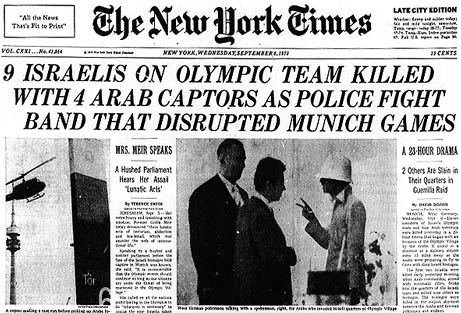
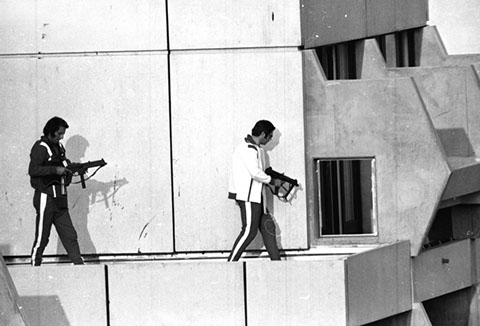
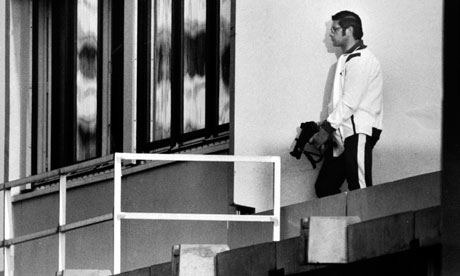
4 - 4
<
>